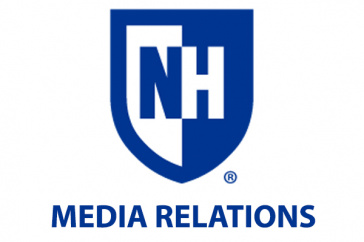The University of New Hampshire inspires innovation and transforms lives in our state, nation and world. More than 16,000 students from all 50 states and 71 countries engage with an award-winning faculty in top-ranked programs in business, engineering, law, health and human services, liberal arts and the sciences across more than 200 programs of study. A Carnegie Classification R1 institution, UNH partners with NASA, NOAA, NSF and NIH, and received $260 million in competitive external funding in FY21 to further explore and define the frontiers of land, sea and space.
UNH Research Finds Uneven Distribution of Retail Food and Food Support Sites Across the State

DURHAM, N.H.—Northern and western areas of the Granite State have a higher proportion of low-income residents and low population density, factors associated with an increased risk of food insecurity, according to new research released by the Carsey School of Public Policy at the University of New Hampshire.
The research also found that the distribution of retail food sources across the state mirrors the population distribution, although residents outside the I-93 corridor in northern New Hampshire have few food retailers to choose from, particularly grocery stores and farm food options.
“Although farms are not the only source for fresh foods, they can be an important one,” said Jess Carson, research assistant professor with the Vulnerable Families Research Program at Carsey. “That many communities in rural New Hampshire do not have access to farm fresh foods is sobering and identifying where residents have less frequent access to fresh foods is useful for targeting nutrition information, planning new farm-to-table initiatives and supplementing retail environments with additional food variety to meet community needs.”
The full report can be found here: https://carsey.unh.edu/publication/mapping-food-landscape-NH.
The Carsey School of Public Policy conducts research, leadership development, and engaged scholarship relevant to public policy. They address pressing challenges, striving for innovative, responsive, and equitable solutions at all levels of government and in the for-profit and nonprofit sectors.
Latest News
-
June 18, 2024
-
June 18, 2024
-
May 17, 2024
-
May 14, 2024
-
May 7, 2024

















































